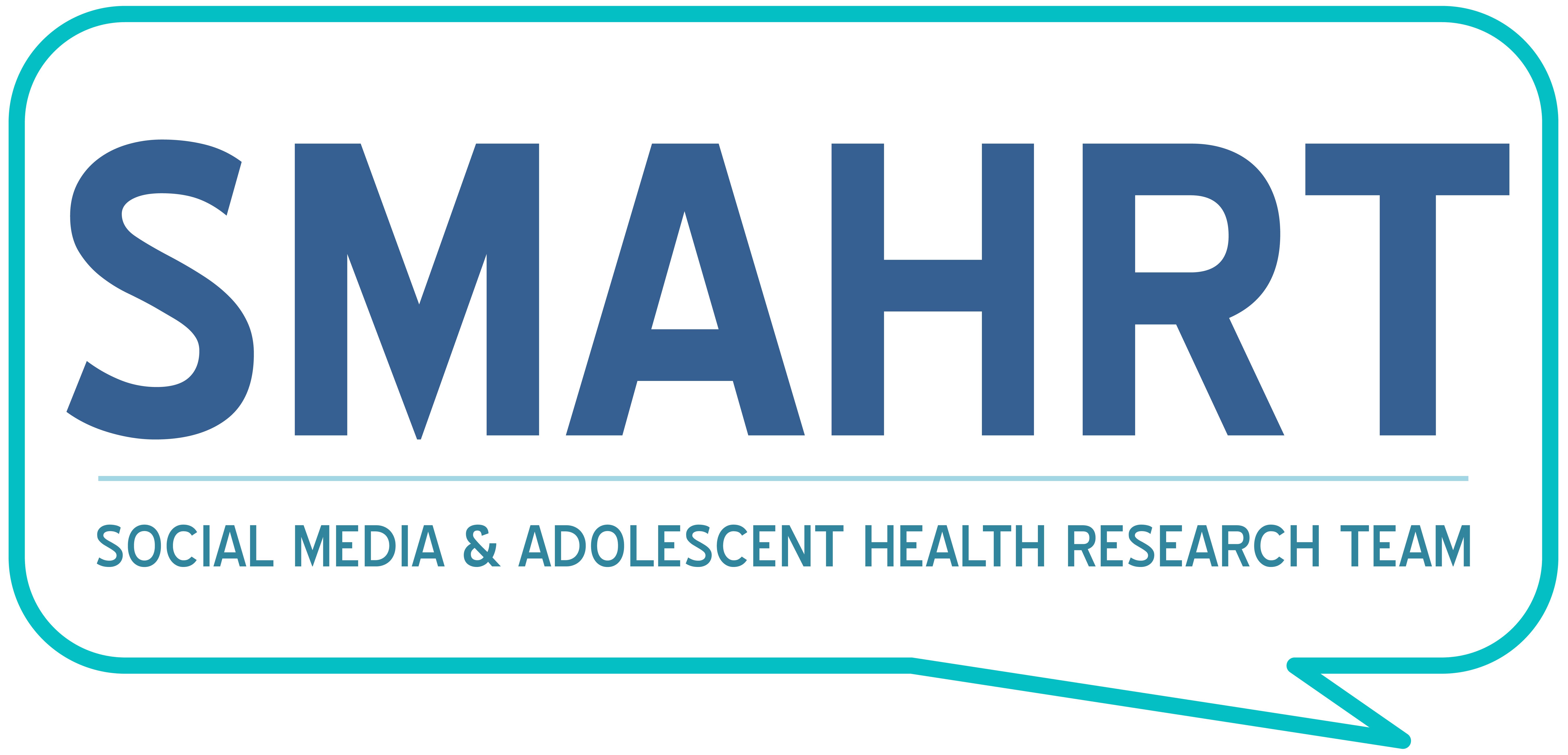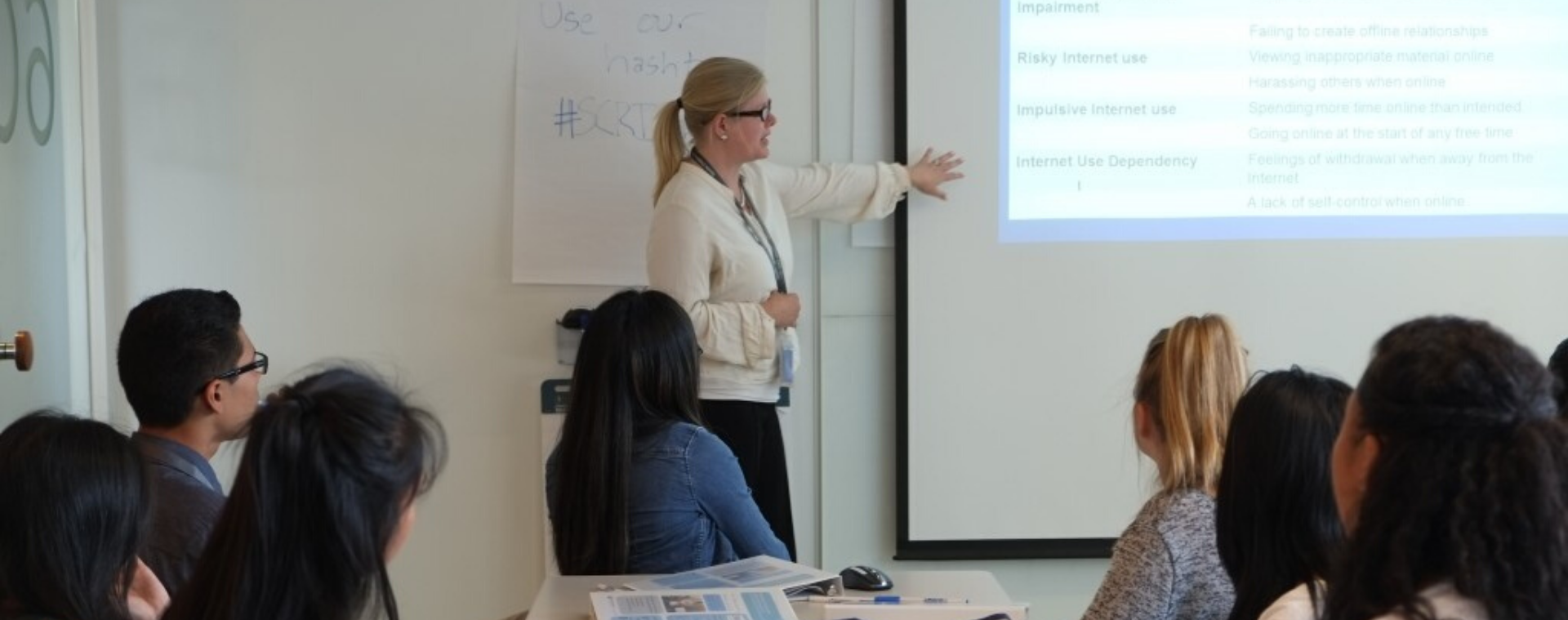
Across various online platforms, like Facebook, there are Pro-Eating Disorder (Pro-ED) communities that portray eating disorders as lifestyles and idealize thinness. These communities are also known as “Pro-anorexia,” or ProAna. These communities have been studied on many platforms, but SMAHRT alum Alina Arseniev-Koehler wanted to examine these communities through the lens of Twitter. Twitter is an extremely popular social media site among adolescents, and Pro-ana communities had yet to be studied on this site. Arseniev-Koehler found this to be a unique setting for Pro-ED because content tends to be publicly exchanged.
Arseniev-Koehler conducted her study “#proana: Pro-eating disorder socialization on Twitter” in order to examine what these communities look like on the Twitter platform. For her study they identified 45 Twitter profiles which publicly self-identified as part of the Pro-ED social movement. They then investigated how these profiles were venues for social expression of an identity focused on eating disorders, finding that one-third (36.4%) of profiles’ tweets contained references to eating disorders. Arseniev-Koehler also investigated the extent of community formation around eating-disordered expression by examining content from 3,719 followers of these 45 profiles. Followers are described as social connections on Twitter, much like one’s ‘friends’ on Facebook. From this examination, they found that 44.5% of these followers also displayed an interest in eating disorders. To explain further, the profiles with more tweets about eating-disorder related content tended to have more followers who also self-identified as interested in eating disorders.
The findings of this study had a couple different aspects. First, the findings illustrated how profiles which self-identify as Pro-ED may express disordered eating patterns through tweets. The second aspect of their findings suggested that these profiles have an audience of followers, many of whom also reference eating disorders in their own profiles. This study highlighted the extent to which Pro-ED on Twitter is a social rather than individualistic phenomenon. Socialization on Twitter might provide social support, but in the Pro-ED context, this activity might also reinforce an eating disorder focused identity.

Alina Arseniev-Koehler was a member of SMAHRT from 2013 to 2015, and was instrumental in the work done on eating disorders on social media, particularly through the previously summarized “#proana: Pro-eating disorder socialization on Twitter” study. She began her second year in the Sociology PhD program atthe University of California Los Angeles this past fall. This year, she is working on a Master’s research project, for which she is investigating how the portrayal of obesity and overweight has changed over the past three decades in the news media. She gained inspiration for this project from her previous work at SMAHRT and her work with social media and eating disorders, while also presenting an opportunity to apply new theories and methods she has learned at her time at UCLA.
For example, she has been analyzing news articles in her Master’s project with a tool called Word2Vec. Word2Vec uses “machine-learning,” meaning that it is given minimal instruction on how to analyze data, and instead learns to do so itself based on examples of how words are used in the data. This was Arseniev-Koehler’s first experience working intensively with machine-learning, and she loves how it can surprise and challenge human researchers. To illustrate, she found that Word2Vec represented the word “fat” in her news data as a word similar to “carbohydrates” “calories” and “protein.” “Fat” did not mean “overweight” as she expected. This experience has also sparked a larger interest in machine-learning for Arseniev-Koehler. As she learns more about how machine-learning structures our everyday lives, she is now fascinated to see how algorithms can sway our experiences, opportunities, and knowledge. She hopes to incorporate this research direction into her Masters project.
Even though she is only one year into graduate school, her research interests have widened and expanded since arriving; however, her ideas and values are rooted in previous research experiences. Arseniev-Koehler is still navigating how to get the most out of her graduate experience, while learning how to distribute her time across classes, research, and engaging in the larger academic community. This fall, Arseniev-Koehler had the opportunity to serve as a graduate mentor for an undergraduate at UCLA who is embarking on her own research project. Even within Arseniev-Koehler’s program there are many possible directions to explore in terms of research and career, and she is excited to explore these opportunities in the coming years.

